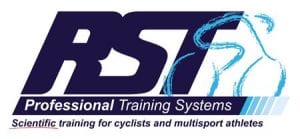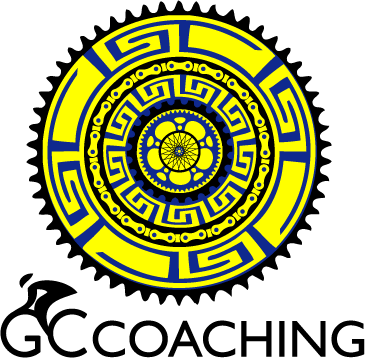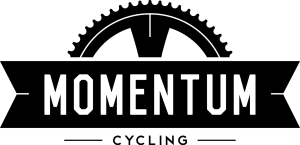Editor’s note: this is part of a series of articles focused on training advice for Zwifters. In each article, coaches bring their experience to the table and answer a single question. Here is this week’s…
We all know that proper recovery is an essential part of any training plan. What can I do to “boost” my recovery: that is, recover more and recover faster?
Richard Stern, RST Sport

Guidelines for Eating and Drinking
If you’re on the turbo trainer, Zwifting away, it’s quite likely that the session has been intense. This will have eaten into your glycogen stores (the body’s carbohydrates) and they will need replacing. If the session has been less intense you may need more ‘mixed’ foods. Evidence shows that consuming 1.0 to 1.5 grams of carbohydrate per kilogram of body mass (e.g. 70 to 105g if you weigh 70 kg/154 lb) within an hour of finishing will help you recover faster. Additionally, consuming up to 1.5 times the amount of fluid lost in session will help you rehydrate (make sure the fluid has electrolytes in). To calculate your lost fluid, subtract your post ride (nude) mass from your immediate pre-ride (nude) mass and multiply that number by 1.25 to 1.5. This is the amount (in liters) you should aim to drink. For example, if you started your session at 70 kg, and finished at 68.5 kg (1.5 kg difference) you should aim to drink 1.875 to 2.25 L of fluid. This fluid could be combined with some of the carbohydrates you’ll need.
It’s also important to get some protein in after exercise, although the evidence shows that carbohydrates are far more important.
Other ways to help your recovery process are to gently cool down on the bike, maybe doing some post-ride stretches/yoga, and perhaps even getting in a cheeky quick nap if you’re really tired! Last: don’t make your session too intense. Try to finish some/most sessions with something to spare, rather than being on your knees!
Rob Manning, Tailwind Coaching
Training stress created by riding, intervals, and accumulated fatigue pushes your body beyond its comfort zone. During recovery, your body makes itself stronger in order to handle increased training demands in the future. You can help support your body by adding a couple of tricks to your arsenal.
1: Sleep! Your body needs rest to rebuild. The more and harder your training, the more sleep you need to recover from that effort.
2: Eat! When you’re expending thousands of calories doing intervals, you have to replace them. It’s ok to run a few hundred calorie deficit if you’re trying to slim down, but being a thousand calories short will hurt your ability to get stronger. Make sure those calories come in the form of muscle building proteins and high-quality carbohydrates to replenish all the muscle tissue you beat up during training.
3: Supplement! Training takes a LOT out of you. Supplementing with essential nutrients can enhance your body’s natural recovery processes. Some of my favorite supplements are BCAAs, Glutamine, Vitamin C, Creatine, magnesium, zinc, and a high-quality protein supplement. Each one has specific biochemical effects and can improve your ability to recover from a hard workout block.
4: Move! Most people think recovery is all or nothing, but moving is a great way to help your body recover. I tell my back injury patients that moving helps to push inflammation out of tissues and prevent muscle stiffness and shortening. Athletes are no different. The occasional recovery ride or even a walk with the family dog can help to loosen and flush out your legs, getting you ready for the next big block.
Don’t neglect your recovery! You wouldn’t want to put in hours of quality work just to sabotage it by wasting your recovery time.
Shayne Gaffney, GC Coaching
Proper recovery comes down to three things for me: diet, hydration, and rest (sleep)… I haven’t found there to be a magic “boost” or anything otherwise.
Diet: Protein and carbohydrates are paramount for recovery, especially at the right time. Hoffman and Falvo (2004) found the best protein to consume after exercise is whey protein, since it has the highest rate of absorption, and in the 10-20g range, because your body can only absorb approximately that much per hour. Overnight, casein protein works best as it has the slowest absorption rate. In between, soy, egg, meat, etc. proteins are best as they have a medium absorption rate. Carbohydrates should also be consumed directly after exercise when they will be absorbed best by the body, the amount continues to be up for debate, but it is generally accepted that 1-2g/kg of body weight is sufficient after a long and intense workout. Protein and carbohydrates should be consumed simultaneously as they have a synergistic absorption relationship.
Hydration: Hydration levels have an effect on many things, including recovery. The next time you ride in the heat or do a longer and more intense Zwift ride, I recommend figuring out your sweat rate. This will give you a better idea of how much fluid you should be consuming on the trainer / in the heat and will prevent dehydration from occurring and a resultant decrease in recovery rate.
Rest: The highest release rate of growth hormone and muscle repair occurs when we are sleeping. Sleeping is also important for mental acuity (should I attack or not!?) as well as motivation, so if you can only do one thing for your recovery, get some shut-eye! As the old adage goes “Don’t stand when you can sit, don’t sit when you can lay down, and don’t lay down when you can sleep.”
Troy Delfs, Momentum Cycling
Cyclists as a whole tend to be a bunch of ‘Type A’ overachievers: athletes who regularly push themselves to the limit and keep close track of their weekly data like ride time, distance, elevation, and training stress score (TSS). These are all very important metrics and if you want to become a great rider, you do need to put in a significant amount of quality saddle time.
However, to benefit from your hard workouts, you need to allow your body sufficient time to rest and recover. Recovery can be enhanced by things such as good nutrition, compression wear, ice baths, massage, yoga, and numerous other recovery tips and tricks. To me, however, there is only one recovery method that really matters and that is SLEEP!
Sleep is the most underrated pillar of health and the one that is most often neglected. The amount of sleep required each night may vary by athlete, but I can bet that almost every person reading this post does not get enough sleep on a regular basis. A good night’s sleep or a quality nap provides your body with, among other things, a surge of Human Growth Hormone, which aids in muscle regeneration.
If my athletes are ever feeling overly fatigued or on the edge of illness and they don’t feel like riding then I always suggest they listen to their body and take a pass on the workout. What I do demand of them in this situation, though, is that in lieu of their ride they lay down and have a nap instead of riding.
So, next time you are having a post ride espresso with your training partners, instead of bragging about who put in the most K’s last week, I suggest that you also brag about who put in the most ZZZ’s!


